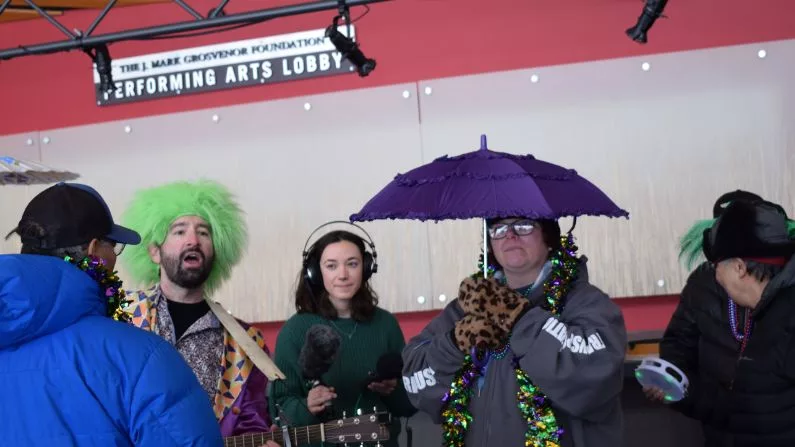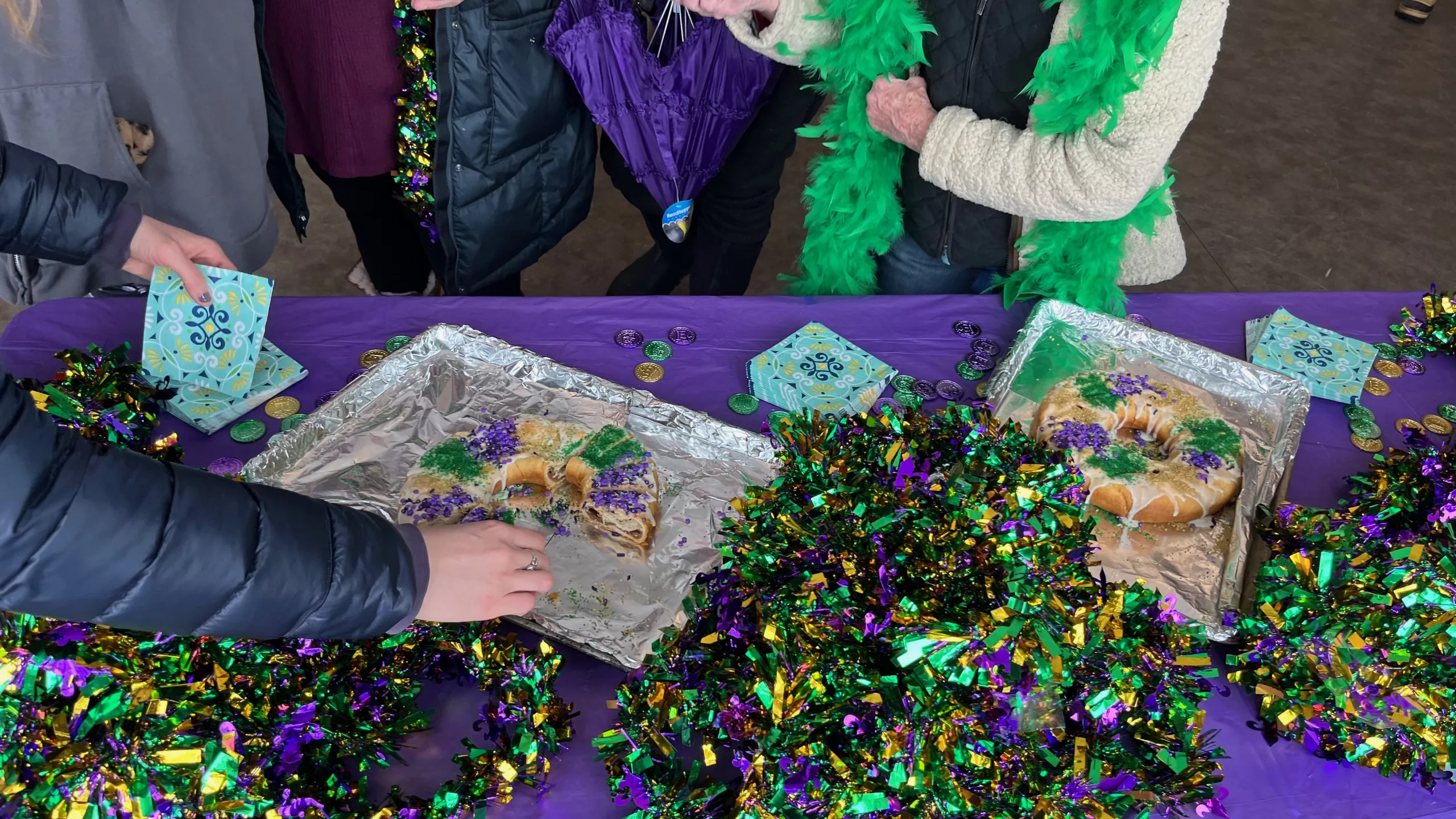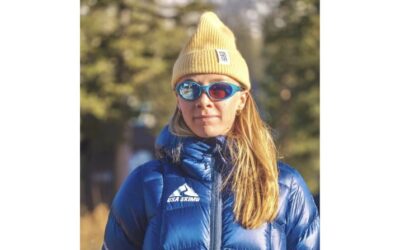Sounds of guitars, kazoos and tambourines filled the Center for the Arts on Wednesday as performers paraded through the hallways.
“Alright, who’s ready for the ‘Mardi Gras Mambo?’” shouted Tom Goicoechea, who was decked out in a green wig and a satin, magenta jacket.
A former New Orleans jazz drummer, Goicoechea is now a music therapist in Jackson and was leading the group known as the Silver Platters—a local band of adults with developmental disabilities.
About ten of the players were decked out in purple, yellow and green bead necklaces and bright-colored boas. Robbie Marsh played the harmonica.
“Let me catch my breath for a minute,” Marsh said before rocking out with his solo.
Marsh is a longtime client of Community Entry Services (CES), a nonprofit that integrates residents with disabilities into the community.
A new collaboration
The Silver Platters are a part of a new partnership between CES and Teton Music School, which was born in 2019 out of the need for a nonprofit music space in Jackson.
Goicoechea started the music therapy program about a year ago and holds practices every Wednesday morning.
“My general goal at the very basic level is just to improve mood with each of the folks,” he said.
“And then once the music makes them happy and we sing a bunch of all of their favorite songs, then they start to notice each other interacting in a different way as a group.”
The music therapy sessions are the only time all of the Wednesday clients come together.
Goicoachea added that singing together helps the participants be part of something bigger. At public events like this, he said that the students feel valued and proud to contribute to the greater community.
Liana Moskowitz, from CES, said it isn’t always easy for her clients to integrate into the community.
“It’s difficult for them to relate to, sometimes, each other, but [it’s harder] in the larger community because they have different social nuances that sometimes people don’t understand,” Moskowitz said. “So, to have that practice and then be able to replicate that in the community, is really positive.”
Moskowitz added that music therapy helps her clients communicate and express emotions. She said playing instruments also helps them improve their coordination.
‘Eager to say yes’
The performers made their way through the lobby and hallways, all the way upstairs to the Teton Music School. They picked up more smiling participants along the way from the many other organizations based in the Center for the Arts, such as Dancers’ Workshop and the Art Association.
Music School leader Amanda Flosbach said the growing crowd was one of her favorite parts.
“I love the invitation for everyone to participate in the thing, not to observe a thing, not to attend a concert that you consume, but you are the performer, you are the music in that moment,” Flosbach said.
In the moments between the music, band members interacted with other community members. Some were people they knew and some were new friends, providing an opportunity for the students to work on their social skills.
Flosbach said the plan is to continue programs like this, making the music school space accessible for all.
“We are finding the ways in which our community needs music and are very eager to say ‘yes’ to those ways,” she said.
As the event came to an end, everyone helped themselves to a slice of king cake, but not before one final song and one more solo from harmonica player Robbie Marsh.
After his moment, Marsh beamed as the crowd cheered and played their kazoos, singing the final verse of “Mardi Gras Mambo.”









